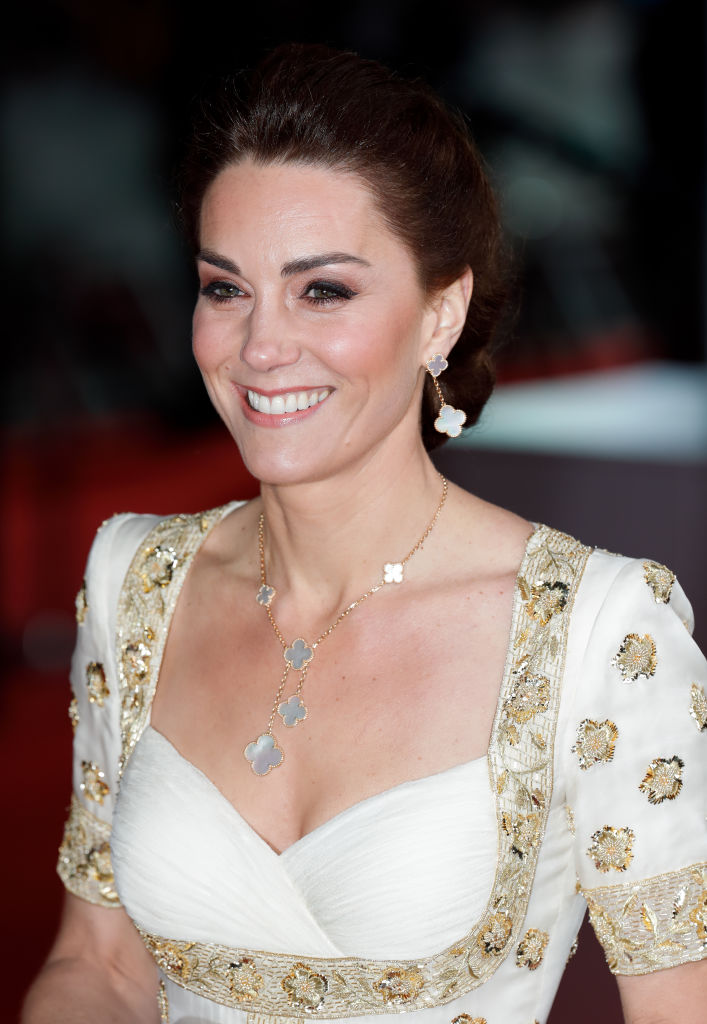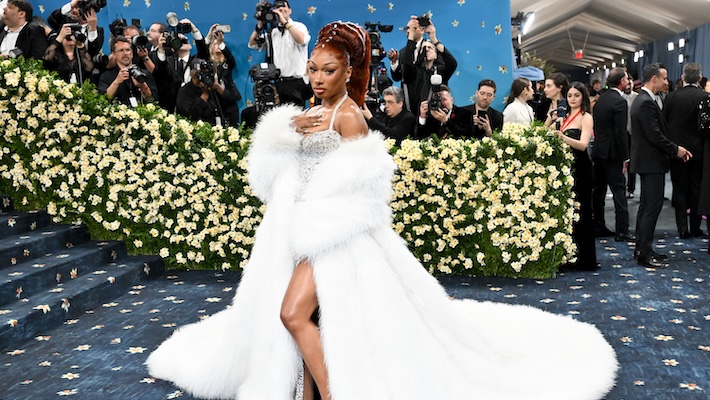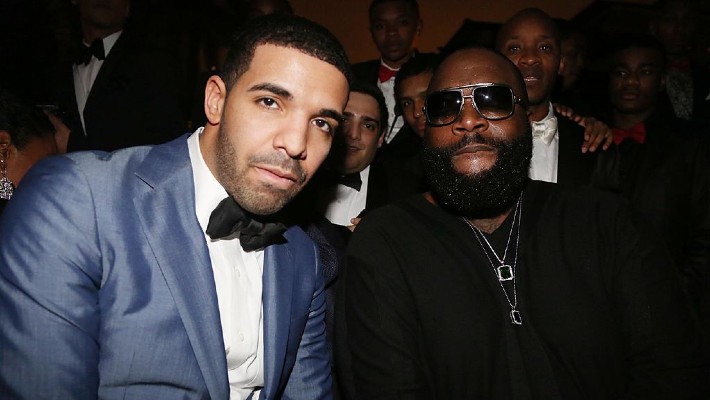What do Princess Grace of Monaco, LeBron James, Lily Van Der Woodsen, Drake, and that one wealthy influencer who keeps popping up on your FYP all have in common? They’re all obsessed with the Van Cleef & Arpels Alhambra.
Layered around necks, stacked on wrists, and draped over handbags, Van Cleef’s coveted four-leaf clover has become a cultural avatar for subtle statement jewelry, bolstered by heavyweight cosigns and a boisterous price tag that fuels a perception of exclusivity.
Specifically, those eager to enter the Van Cleef club must dish out anywhere from $2,000 to north of $30,000, depending on whether they choose a white or yellow gold Alhambra necklace, ring, or bracelet inset with a rare gemstone of their choice — assuming they can even find one of the sold-out styles at retail. But they’ll get what they pay for.
Van Cleef & Arpels has earned its legendary reputation on the strength of its stone setting and hand-crafted jewelry.
Fostered by Van Cleef’s famously imaginative handmade tendencies, quietly nurtured by parent company Richemont and deeply rooted in Van Cleef & Arpels’ century-long lore, the Alhambra line has enjoyed a quiet slow burn over the past decade, eventually reaching a point that some contend approaches oversaturation, like the Cartier Love bracelet before it.
Of Van Cleef & Arpels’ many signature collections, like the golden pearls of Perlée and nature-inspired creations of Fauna, the Alhambra motif has unofficially emerged as the brand’s flagship series.
Launched in 1968, the original four-leaf clover design is attributed to Jacques Arpels, a nephew of one of Van Cleef’s founding families, obsessed with luck, clovers, and the Moorish quatrefoil motifs found in Spain. This all acted as the inspiration for Alhambra’s unassuming shape.
Its four leaves are commonly made from precious metals, though “vintage” versions include different gemstones. Both variants frequently adorned the wrists, necks, and fingers of ultra-wealthy, often royal, women.
If women of means established the Alhambra as pure aspiration, hip hop’s leading men are responsible for shifting Van Cleef’s precious metal motif into our era’s genderfluid it-jewelry.
For instance, Drake, a luxury power player, frequently and casually reps Alhambra necklaces in mother-of-pearl and 18k white gold, even name-dropping Van Cleef in the song “BackOutsideBoyz.”
Rappers of all contemporary eras, from Central Cee to Offset, have also accessorized Van Cleef’s Alhambra with their favorite luxury watches (which they really shouldn’t do because it risks scratching the timepiece and the bracelet itself).
“The sudden rise of Van Cleef’s Alhambra is attributed to its prevalence among male celebrities and customers,” says Drizzie Zuo, luxury critic at Shanghai’s LADYMAX, in a Zoom call with Highsnobiety.
With the modest Alhambra elevated to flex status by famous guys, the TikTok Alhambra deep dives, four-leaf clover accessorizing on Instagram, and Van Cleef discourse on Twitter has added more kindling to Alhambra’s hype.
This is obviously the most common route wherein celebrity-endorsed luxury grails like The Row’s Margaux bag, Patek Phillipe’s 5711 watch, and Bottega Veneta’s gold droplet earrings enjoy an organic Birkin-like rise to prominence. The Alhambra take-over has been similar, but repackaging it beyond just a modern heirloom to a universal stylish accessory has helped solidify its place on our feeds.
The Alhambra has become as normalized as the Rolex Daytona worn with it, demonstrated by everyone from LeBron James proudly stacking a wistful of lucky charms to influencers pushing His & Her Alhambra bracelet as wedding gifts.
“The internet and social media are seemingly infinite participants [in the spread of trends],” we reported in our own recent New Luxury report. “The near-instantaneous speed at which trends pick up and spread means that no emerging cultural or style trend truly remains ‘sub.”
And Richemont, the brand’s financier, has even enjoyed the fruits of Van Cleef’s growing hype. A recent report indicates that Van Cleef & Arpels directly contributed to the six percent sales increase to Richemont’s jewelry division over 2023 – 2024, which is big for an industry broadly struggling to hit revenue targets.
Stylistically, the Alhambra also makes sense. Even separated from its contemporary hype and financial growth, Alhambra’s no-frills design is incredibly approachable but still romantic.
It’s not as coldly stoic as the bracelets and bangles designed by Hermes, Valentino, and Cartier, for instance, while clearly, Alhambra-inspired designs produced by brands like Louis Vuitton and Bucherer beg the question: why not just buy the OG?
Part of Alhambra’s beauty is that the motif is too simple to feel stodgy. It feels instead like a modern heirloom, a factor critical within today’s jewelry landscape.
“As we continue to move into the value era, where possessions are assets and worth is defined by more than price tags, buyers are increasingly perceiving their purchases as investments – focusing on high-quality items with meaning and durability,” Matter of Form stated in its 2024 jewelry industry report.
All of this Alhambra hype reminds me of where we were at with the Cartier Love bracelet in the mid-2010s just before the slim metal bangle lost some of its sheen due to overexposure.
Is the Alhambra destined for the same fall-off?
Likewise, Van Cleef knock-offs are growing in popularity as demand for the Alhambra swells, a similar circumstance to Cartier’s super-fake problem. However, the Alhambra has a unique solution to the problem of mass imitation.
“Cartier’s Love Bracelet problem was not knockoffs but a lack of colorway and product choices,” says luxury critic Drizzie Zuo. “Van Cleef, meanwhile, offers the Alhambra with “different stones, materials, and colors, thus a lot more freshness.”
Beyond the wide variety of permutations, the Alhambra’s representation of Van Cleef’s craftsmanship and organic growth — Van Cleef does not pay celebrity ambassadors to wear the Alhambra styles — creates insulation against the ebb and flow of taste.
So, though the Alhambra is currently trendy, it is not a trend. If anything, its heightened visibility is only more likely to solidify Van Cleef’s signature bauble as a stone-cold classic.
“Some icons reach this status linked with rarity, like [Cartier’s] Crash watch, so it cannot be overexposed,” Cartier CEO Cyrille Vigneron recently said. “Some other icons, symbolic and universal, gain power when seen more.”
Want to keep browsing? Download the Highsnobiety app for all the hottest products and brands from the Highsnobiety Shop.




